The Environment and the Christian
The following book list was generated through a creative conversation between Dr. Brenda Thomas, retired Professor of English, LaGrange College; and Michael Gibson, acquisitions editor for environmental studies, Roman and Littlefield Publishers.
These books represent the best book-length material available for persons wishing to link concern for the health of the planet with biblical faith. The book descriptions were written by Brenda.
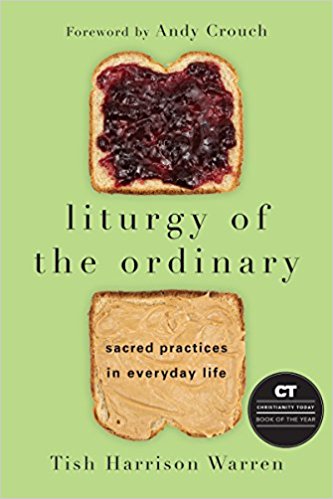
Warren, Tish Harrison . Liturgy of the Ordinary: Sacred Practices in Everyday Life. IVP Books, 2016.
In Christianity Today ‘s 2018 Book of the Year, Tish Harrison Warren examines how we can embrace the sacred in the ordinary and the ordinary in the sacred experiences of life. Framed around one ordinary day, this book explores daily life through the lens of liturgy, small practices, and habits that form us. Each chapter looks at simple experiences―waking up, making the bed, brushing teeth, losing keys, eating leftovers, sitting in traffic, checking email, fighting with one’s spouse, calling a friend,drinking tea, and sleeping―that shape the contours of our daily lives. Drawing from the diversity of her life as a campus minister, Anglican priest, friend, wife, and mother, Warren opens up a practical theology of the everyday. Each activity is related to a spiritual practice as well as an aspect of our Sunday worship.
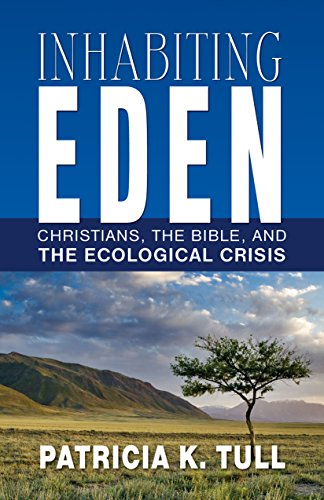
Tull , Patricia K. Inhabiting Eden: Christians, the Bible, and the Ecological Crisis . Westminster John Knox Press, 2013.
In this thoughtful study, respected Old Testament scholar Patricia K. Tull explores the Scriptures for guidance on today’s ecological crisis. Tull looks to the Bible for what it can tell us about our relationships, not just to the earth itself, but also to plant and animal life, to each other, to descendants who will inherit the planet from us, and to our Creator. She offers candid discussions on many current ecological problems that humans contribute to, such as the overuse of energy resources like gas and electricity, consumerism, foodproduction systems–including land use and factory farming–and toxic waste.Each chapter concludes with discussion questions and a practical exercise, making it ideal for both group and individual study.
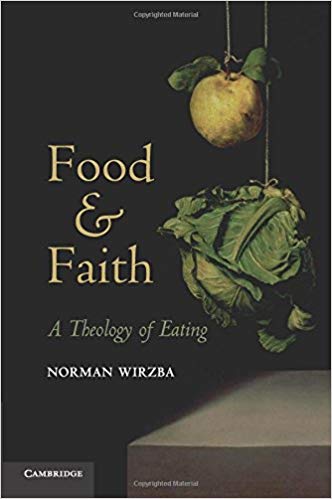
Wirzba,Norman. Food and Faith: A Theology of Eating . Cambridge University Press, 2011.
Unlike books that focus on vegetarianism or food distribution as the key theological matters, this book broadens the scope to include discussions on the sacramental character of eating, eating’s ecological and social contexts, the meaning of death and sacrifice as they relate to eating, the Eucharist as the place of inspiration and orientation, the importance of saying grace, and whether or not there will be eating in heaven. Food and Faith demonstrates that eating is of profound economic,moral, and theological significance.
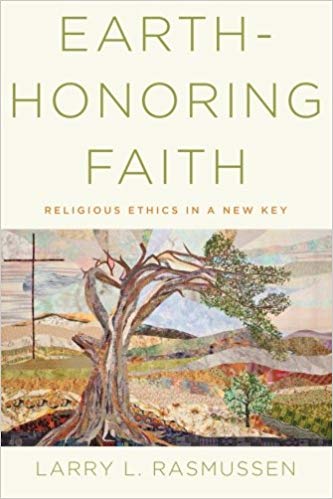
Rasmussen, Larry L. Earth-honoring Faith: Religious Ethics in a New Key Oxford University Press, 2015.
Rejecting the modern assumption that morality applies to human society alone, Rasmussen insists that we must derive a spiritual ethic that accounts for the well-being of all creation, as well as the primal elements upon which it depends: earth, air, fire, water, and sunlight. Written with passionate commitment and deep insight, Earth-honoring Faith reminds us that we must live in the present with the knowledge that the eyes of future generations will look back at us. In Part Two, Rasmussen focuses upon traditions that include mysticism, sacramentalism, prophetic practices, asceticism, and the cultivation of wisdom as shared spiritual practices–all of which can produce a chorus of world faiths to counter the consumerism, utilitarianism, alienation, oppression, and folly that have pushed us to the brink. He argues that we must draw on religious resources to make the difficult transition from an industrial-technological age obsessed with consumption to an ecological age that restores wise stewardship of all life.
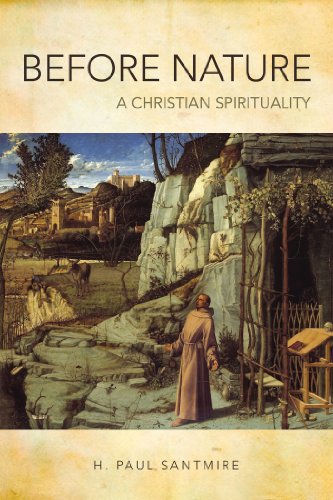
Santimire,H. Paul. Before Nature: A Christian Spirituality. Fortress Press, 2014.
Before Nature caps a set of themes first brought to the fore in Santmire’s previous work, most notably the classic The Travail of Nature. Santimire continues the pursuit of a theology bound up with nature and its condition,especially the fragility and fervent expectation of nature’s redemption.Out of this concern, Santmire invites readers on a theological and spiritual journey to a prayerful and contemplative knowledge of the Triune God, in which practitioners are inducted into a bountiful relationship with the cosmic and universal ministry of Christ and the Spirit uniting all of nature in a single vision of hope and anticipation. Scholarly, practical, and accessible.

McFague, Sallie . A New Climate for Theology: God, the World, and Global Warming .Fortress Press, 2008.
A New Climate for Theology not only traces the distorted notion of unlimited desire that fuels our market system; it also paints an alternative idea of what being human means and what a just and sustainable economy might mean. Convincing, specific, and wise, McFague argues for an alternative economic order and for our relational identity as part of an unfolding universe that expresses divine love and human freedom. It is a view that can inspire real change, an altered lifestyle, and a form of Christian discipleship and desire appropriate to who we really are.
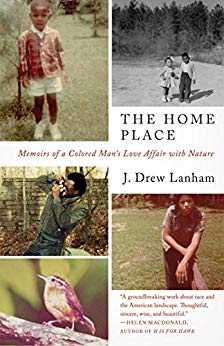
Lanham , J. Drew. The Home Place: Memoirs of a “Colored” Man’s Love Affair with Nature Milkweed Editions, 2017.
From the fertile soils of love, land,identity, family, and race emerges The Home Place , a big-hearted, unforgettable memoir by ornithologist J. Drew Lanham. Dating back to slavery, Edgefield County, South Carolina―a place “easy to pass by on the way somewhere else”―has been home to generations of Lanhams. By turns angry, funny, elegiac, and heartbreaking, The Home Place is a remarkable meditation on nature and belonging, at once a deeply moving memoir and riveting exploration of the contradictions of black identity in the rural South―and in America today.
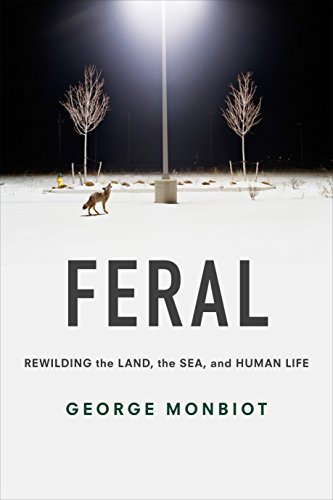
Monbiot, George . Feral: Rewilding the Land, the Sea, and Human Life. University of Chicago Press, 2017.
Monbiot takes readers on anenchanting journey around the world to explore ecosystems that have been “rewilded”: freed from human intervention and allowed―in some cases for the first time in millennia―to resume their natural ecological processes. Through his eyes, we see environmental success―and begin to envision a future world where humans and nature are no longer separate and antagonistic, but are together part of a single, healing world. Monbiot’s commitment is fierce, his passion infectious, his writing compelling.
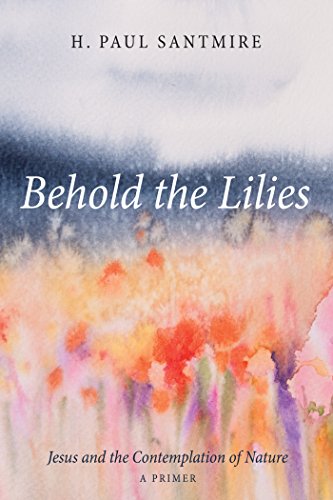
Santmire, H. Paul. Behold the Lilies: Nature – A Primer. Cascade Books, 2017.
Behold the Lilies draws from the riches of the author’s long-standing work in the theology of nature and ecological spirituality. In this new volume, Santmire maintains that those who would follow Jesus are mandated not just to care for the earth and all its creatures but also to contemplate the beauties of the whole creation, beginning with “the lilies of the field.” This accessible primer will be welcomed not only by those who have already identified themselves with the way of Jesus but also by others who are searching for a contemplative spirituality attuned to global ecological and justice issues.
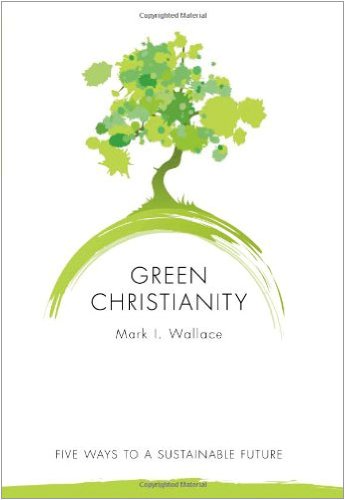
Green Christianity: Five Ways to a Sustainable Future Mark I. Wallace
Fortress Press; Pap/DVD edition (September 15, 2010)
The central message of this book is that religion has a special role to play in saving the planet. Religion has the unique power to fire the imagination and empower the will to break the cycle of addiction to nonrenewable energy. The environmental crisis is a crisis not of the head but of the heart. The problem is not that we do not know how to stop climate change but rather that we lack the inner strength to redirect our culture and economy toward a sustainable future. Only a bold and courageous faith can undergird a long-term commitment to change. This book is a call to hope, not despair – a survey of promising directions and a call for readers to discover meaning and purpose in their lives through a spiritually charged commitment to saving the Earth.
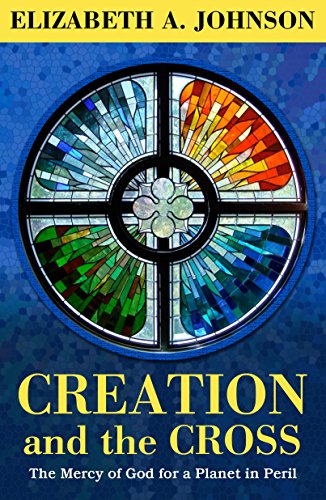
Creation and the Cross Elizabeth A. Johnson ORBIS (February 20, 2018) Publication Date: February 20, 2018
In this fresh creative approach to theology, Elizabeth Johnson asks how we can understand cosmic redemption in a time of advancing ecological devastation. In effect, how can we extend the core Christian belief in salvation to include all created beings. Immediately this quest runs into a formidable obstacle: the idea that Jesus’ death on the cross was required as an atonement for human sin—a theology laid out by the eleventh-century theologian Anselm. Constructing her argument (like Anselm) in the form of a dialogue, Johnson lays out the foundations in scripture, the teachings of Jesus, and the early Church for an understanding that emphasizes the love and mercy of God, showing how this approach could help us respond to a planet in peril.
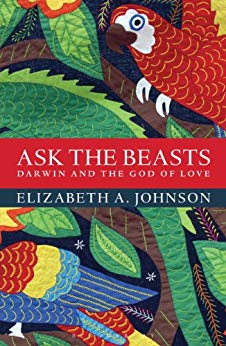
Ask the Beasts: Darwin and the God of Love. Elizabeth A. Johnson
For millennia plant and animal species have received little sustained attention as subjects of Christian theology and ethics in their own right. Focused on the human dilemma of sin and redemptive grace, theology has considered the doctrine of creation to be mainly an overture to the main drama of human being`s relationship to God. What value does the natural world have within the framework of religious belief? The crisis of biodiversity in our day, when species are going extinct at more than 1,000 times the natural rate, renders this question acutely important.Standard perspectives need to be realigned; theology needs to look out of the window, so to speak as well as in the mirror. Ask the Beasts: Darwin and the God of Love leads to the conclusion that love of the natural world is an intrinsic element of faith in God and that far from being an add-on, ecological care is at the center of moral life.
